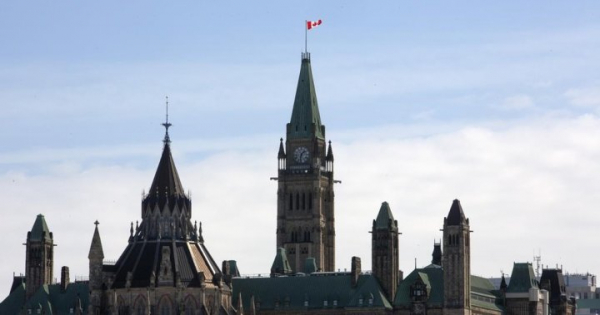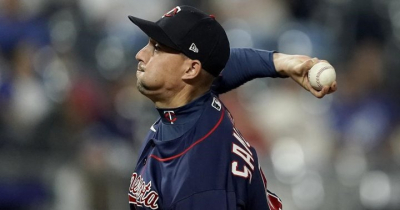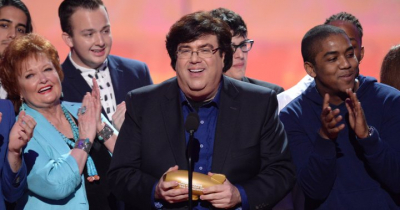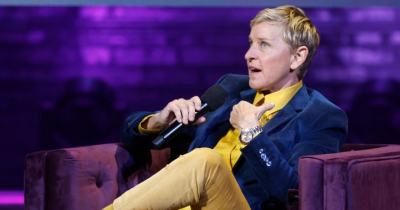Canada's pursuit of transparency in the face of alleged foreign interference is set to unfold as the nation prepares for its inaugural public hearings, scheduled for late January, as announced by the federal government last Friday. This marks the first of two anticipated sessions in 2024, delving into the intricate web of allegations surrounding interference from global players such as China and Russia, particularly examining their potential impact on the federal elections of 2019 and 2021.
In an official release, the inquiry outlines its ambitious goal of navigating the complexities of divulging information garnered from classified documents and sources. The focus lies not only on the hearings themselves but also on formulating reports that strike a delicate balance between transparency and national security. Judge Marie-Josee Hogue, entrusted with leading the public inquiry, emphasizes the preliminary nature of these hearings, designed to pave the way for subsequent sessions addressing the substantive issues within the inquiry's mandate.
The January hearings, spanning five days in Ottawa, will feature testimonies from factual witnesses and experts, providing a foundational understanding of the alleged interference. Notably, the commission overseeing the inquiry has requested a postponement of the first report's due date until May 3. Judge Hogue rationalizes this extension as crucial for harnessing the full potential of the preliminary hearings and ensuring transparency in the commission's work. She acknowledges the intricate process of converting classified information into a form suitable for public release, underscoring the commission's commitment to public hearings before submitting its initial report.
Despite the delay in the first report, the commission affirms its commitment to the original deadline of December 31, 2024, for the second report. The parallel execution of the two phases aims to streamline the inquiry's progress. The second phase will scrutinize government departments and agencies, exploring mechanisms for detecting and countering foreign interference.
Judge Hogue, a puisne judge of the Court of Appeal of Quebec, was chosen by Public Safety Minister Dominic LeBlanc after an extensive search. This decision followed the resignation of former governor general David Johnston from the role of special rapporteur investigating foreign interference allegations. The public hearings are slated to commence on January 29, offering a comprehensive exploration of the intricate landscape of foreign interference on Canadian soil.
In conclusion, Canada's pursuit of understanding and addressing foreign interference stands at the precipice of a significant and meticulously planned inquiry. The announcement of the inaugural public hearings in late January signals the commencement of a thorough examination into allegations involving global actors, with a keen focus on potential impacts on federal elections. The commitment to transparency is evident in the careful consideration given to the complexities of handling classified information.
Judge Marie-Josee Hogue's emphasis on the preliminary nature of the upcoming hearings underscores the strategic approach adopted by the commission. The decision to extend the deadline for the first report until May 3 reflects a dedication to maximizing the transparency of the inquiry's findings. This delay, justified by the intricate process of converting classified information into publicly digestible formats, serves as a testament to the commission's commitment to delivering a comprehensive and well-informed report.
As the public hearings commence in late January, featuring testimonies from factual witnesses and experts, it marks a crucial step in unraveling the layers of alleged interference. The parallel execution of the inquiry's two phases further underscores the efficiency and thoroughness of the commission's approach.
In the backdrop of a meticulous selection process for the inquiry's lead, Judge Hogue, and the complexities involved in investigating allegations of foreign interference, Canada is poised to navigate these challenges with diligence. The public hearings, set to unfold in downtown Ottawa, promise to shed light on the intricate landscape of foreign interference, shaping the trajectory of the inquiry and providing valuable insights into safeguarding the integrity of future elections.
As the nation awaits the unfolding of these critical proceedings, it remains clear that Canada's commitment to upholding democratic processes and ensuring transparency in the face of global challenges is steadfast and resolute. The inquiry's journey, starting with the January hearings, holds the promise of not only uncovering the truth behind alleged interference but also contributing to the development of robust mechanisms to safeguard the nation's democratic institutions.






